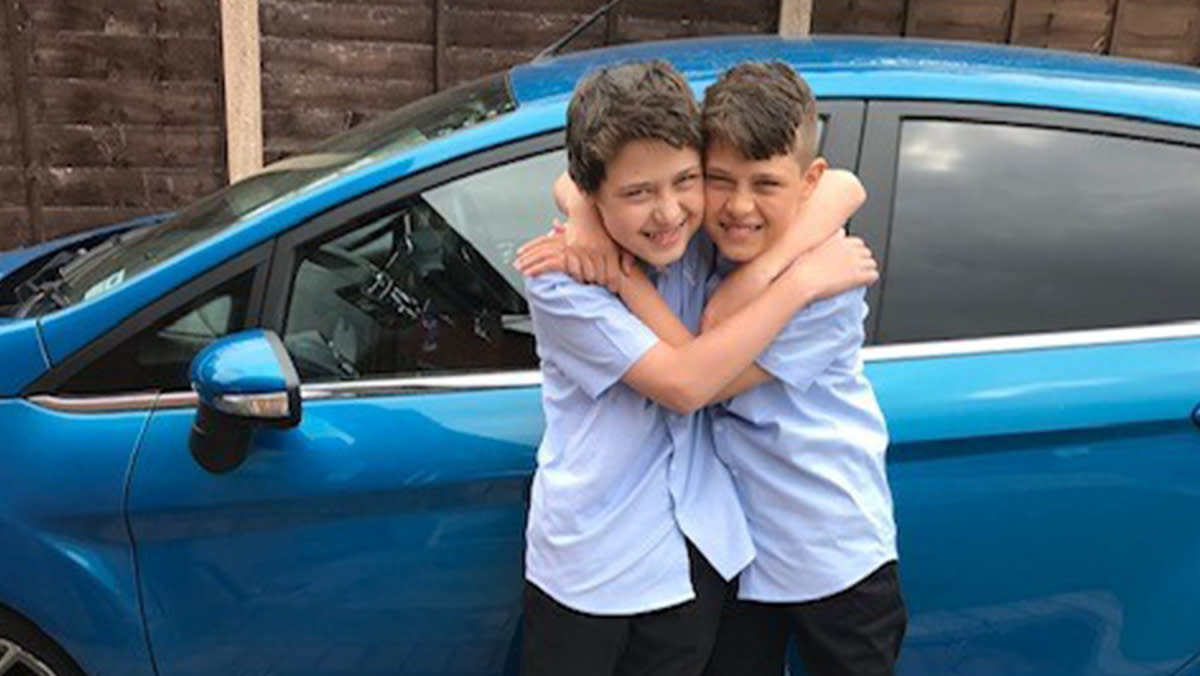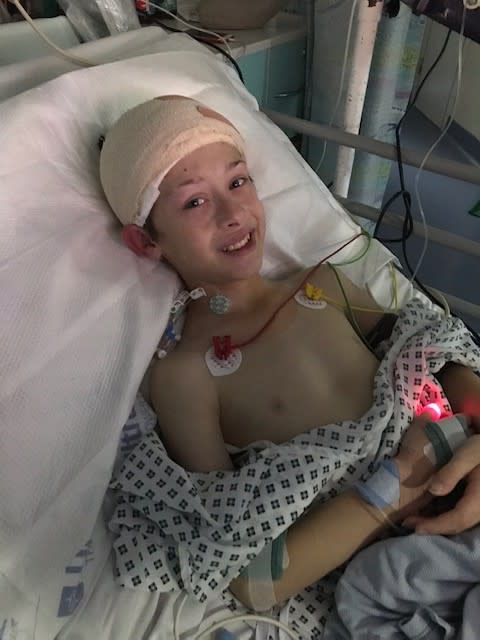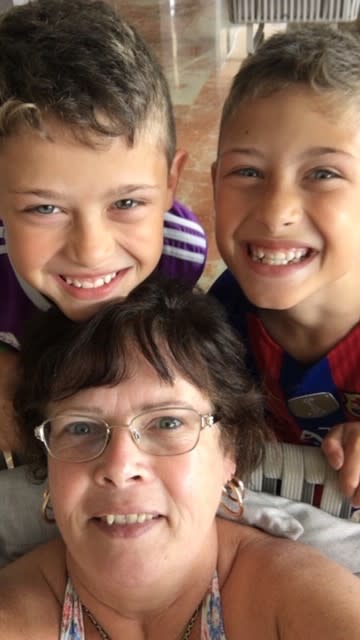Boy, 12, diagnosed with leukaemia weeks after his twin died of a brain tumour

A mother has revealed how her 12-year-old son was diagnosed with leukaemia just two weeks after his twin’s funeral.
Julie Parton’s son Ben lost a considerable amount of weight when he started vomiting every few days, which doctors twice dismissed as a stomach bug.
It was not until he collapsed while getting out of bed that Parton, 51, rushed him to hospital, where he was diagnosed with the brain tumour glioblastoma multiforme.
Doctors gave Ben less than two years to live and he died just eight months later aged 12.
Read more: Skin cancer deaths up 150% since the 1970s
Ben’s twin Jack was thought to have post-traumatic stress disorder (PTSD) when he complained of back pain and nausea just two weeks after his brother’s funeral.
Tests later revealed Jack had leukaemia.
Parton, from Staffordshire, admits to feeling slight “relief” that Jack had leukaemia, which is typically easier to treat than a brain tumour, with Ben “never really standing a chance”.
Although Jack is in remission, he will stay on chemotherapy for two-and-a-half years to ensure the disease does not return.

“It’s almost impossible to put into words how horrendous this has been,” said Parton.
“Having gone through everything with Ben and, just as we were grieving his loss, it was a hammer blow to find out only two weeks after his funeral that Jack was also fighting cancer.”
Ben developed headaches in March 2019 when he was 11. When he started vomiting, his mother initially put it down to a sickness bug going around his school.
To be on the safe side, she took him to A&E at Walsall Manor Hospital, where doctors agreed it was likely to be gastroenteritis.
Read more: Hopes of new pancreatic cancer drug after mice treated
With the vomiting coming and going, Ben had lost a considerable amount of weight by mid-April and was struggling to move his right arm.
After going back to the hospital, Parton was again told it was a stomach bug, with doctors giving Ben antacids.
“I felt everyone was dragging their feet and, with Ben still poorly, I took him to A&E once again where we were told his blood results were fine and we were sent on our way,” Parton told Brain Tumour Research.
“But just four days later, Ben collapsed as he got out of bed and he was taken by ambulance to hospital, this time it was New Cross in Wolverhampton.
“It wasn’t long before he had a CT scan and [we] were told the devastating news that Ben had a brain tumour.”
The family was immediately transferred to Birmingham Children’s Hospital, where Ben had surgery.
While awaiting radiotherapy, Ben complained of headaches. A scan revealed on 4 June the tumour had returned, forcing him to have another operation six days later.
On 3 July, Ben began 30 rounds of radiotherapy.
Read more: Teen, 17, has surgery to remove brain tumour
“It wasn’t until the last couple of weeks of treatment that he started to be sick again,” said Parton.
“On 23 September, Ben started what should have been four cycles of chemotherapy.
“After the second cycle it was clear the drugs weren’t working and the cancer was spreading in his brain.
“It was made very clear from the outset that Ben’s prognosis with such an aggressive brain tumour was extremely poor.
“It was a grade four glioblastoma multiforme, as bad as things get, and a brain tumour type which just 20% of patients live beyond five years of their diagnosis.”
Ben died eight months after he was diagnosed, aged 12.

Just a fortnight after his brother’s funeral, Jack received his cancer diagnosis in January 2020.
“Although it seems wrong to say this, it was a relief to discover Jack had leukaemia rather than brain cancer,” said Parton.
“Thanks to the investment in research, Jack and other leukaemia patients now have hope of a cure.
“Ben was not so lucky, he never really stood a chance.”
Like his brother, Jack had chemotherapy at Birmingham Children’s Hospital.
“All things considered, Jack is doing well, although some days are incredibly tough,” said Parton.
“He misses Ben so much and would give anything for them to be on PlayStation together.”
Parton is campaigning alongside Brain Tumour Research to increase the national investment into brain tumour research to £35m ($45.7m) a year; around what leukaemia, breast and prostate cancer receive.
According to the charity, more than 70% of breast and prostate cancer patients are alive five years after their diagnosis, while leukaemia’s five-year survival rate is over 40%. This is compared to just 12% for brain tumours.
Since national cancer spend records began in 2002, £680m ($888.8m) has been invested in breast cancer, yet only £96m ($125.4m) has gone into brain tumours, it added.
This is despite more children and adults under 40 dying of a brain tumour than any other cancer.
Brain Tumour Research’s petition to increase the national investment into brain tumour research can be signed here.



